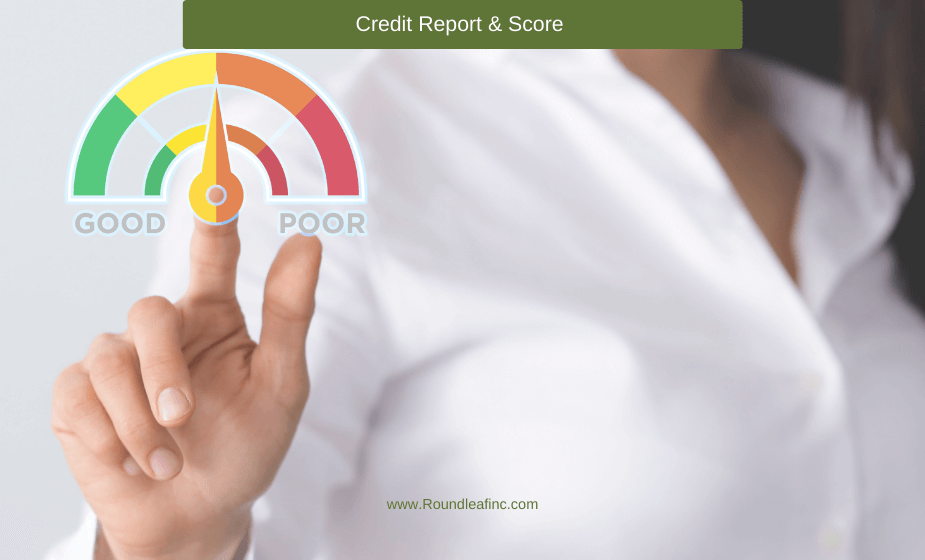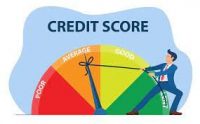How long to improve credit score?

Improving your credit score can be difficult. The truth is, improving your credit score takes time, and getting back on track takes diligence and dedication.
Your credit history grows and ages, along with each credit account you open. Life has a way of getting in between our plans and goals that sets us back. The loss of a job, family illness, or the birth of a new baby can cause us to get behind on our obligations. Regardless of the reason, our credit history is affected by many things, and it starts the very first day you take out a loan, a credit card, or make a purchase on payments.
How to read a credit report
Credit scores range from 350 to 850. Typically, any score between 350 to 600 is considered low to fair. Credit scores between 650 to 850 are considered good to excellent. For the most part, credit reports that reflect negative scores, fraudulent accounts, delinquencies, charge-offs, collection accounts, and a high credit card balance typically lowers a credit score.
A credit report is not the same as a FICO credit score. It is a preview of your financial history. A credit report is needed for lenders, employment, utilities, and housing associations to verify good credit and payment history.
You must understand how to read your credit report. Equifax, Experian, and TransUnion are the three major credit bureaus that collect public record information to build your credit report. Your credit report has four sections of relevance:
- Full legal name
- Both current and past addresses
- Date of birth
- Social Security number.
Credit History includes closed and open credit accounts and the financial snapshot of your ability to repay along with late or missed payments through the duration. Public Records typically include any records related to your finances. Credit Inquiries include any company or person who has checked your credit in the past two years.
Carefully review your reports from each credit bureau to identify any discrepancies.
What is a good credit score?

Credit score range
- Perfect credit score: 850
- Excellent rating: 740-849
- Good credit score: 700 to 739
- Fair score: 650 to 699
- Low score: 649 and below
What is the quickest way to improve a credit score?
Of course, the quickest way to improve your credit score is to pay off all your debts. Your credit report updates and changes monthly, so every missed payment counts. Paying off credit card balances is also a fast fix that can improve your score under the credit utilization factor.
Paying off debt minimizes your debt-to-income ratio that also affects your credit file.
For credit accounts in collections, you could see a significant improvement to your FICO score, from one to three months after it’s been paid off. The higher the number of late payments you have, the longer it takes to fall off your credit report and can stay there for several years.
A hard credit check or inquiry when applying for an auto loan, credit card, or installment loan can remain on your credit report for years. Review your credit reports from all three credit reporting agencies to see what is causing your FICO credit score to drop. Focus your effort on the accounts that will have the most significant impact.
If your credit report looks accurate, here are a few ways to improve your credit score effectively.
If you lack credit,
The best option is to get approved for new credit by applying for a small loan through your local bank to help establish credit. Make sure to make your monthly payments on time. A good rule of thumb is to make the monthly payments and try to pay off the loan within a six-month window.
Once you have completed the term of the loan, you should either take out another loan or apply for a credit card. Make sure to make your payments regularly to show other creditors that you are trustworthy in making payments.
If you have credit established, but you want to improve your credit score,
You should start by making sure to bring all delinquent accounts current. Many people think that paying off all of their debt is the best way to go and end up feeling overwhelmed when they are not able to do so.
One way to help keep the stress low and make the most significant impact on your credit score is to bring all delinquent accounts current. Focus on paying off the smallest debts first. Settling accounts that are in collections can also improve your score quickly. Keep in mind that your late payments can remain on your credit report for up to seven years.
If either of the above options is not suitable for your situation,
you may consider applying for a secured credit card. While the interest rates are often higher, the credit limit is determined by the initial deposit that ensures your ability to pay. Typically, the deposit also determines your available credit. A secured credit card can help you establish a payment history.
Can you correct errors in your credit score?
If you’re hoping to increase your credit score fast, the first place to start is by correcting any errors on your credit report. It is not uncommon for a credit bureau to make a mistake and not update it correctly due to human and technological errors. It is advised that you look at your credit report at least every quarter.
The great news is you can correct credit rating errors on your credit report. You can contact the credit bureau and the lender or credit provider that reported the information to ensure mistakes are corrected as quickly as possible. According to the Fair Credit Reporting Act, both are responsible for correcting inaccurate or incomplete information, and the bureau must investigate within 30 days.
Finally,
If the information in your credit report is causing you harm, you may consider hiring a credit professional to help you resolve the issue. The goal is to have a good credit score. But there are times when improving the score seems daunting since the recovery time from missed payments or delinquencies can vary per situation.
As many consumers know, your credit score can determine the interest rate you’ll pay for credit cards, car loans, mortgages, and revolving credit. Those three digits on your credit profile can save you tens of thousands of dollars over time or cost you just as much.
Roundleaf will provide a free credit report to help you understand what is affecting your scores. We help you discover how to reset your debt and determine what next best steps to take to achieve a higher credit score.
Similar Readings:
- How Your Credit Score Can Affect Your Interest Rates
- The True Cost of Credit Card Debt
- Out of the Box Tips to Improve Your Credit Score
